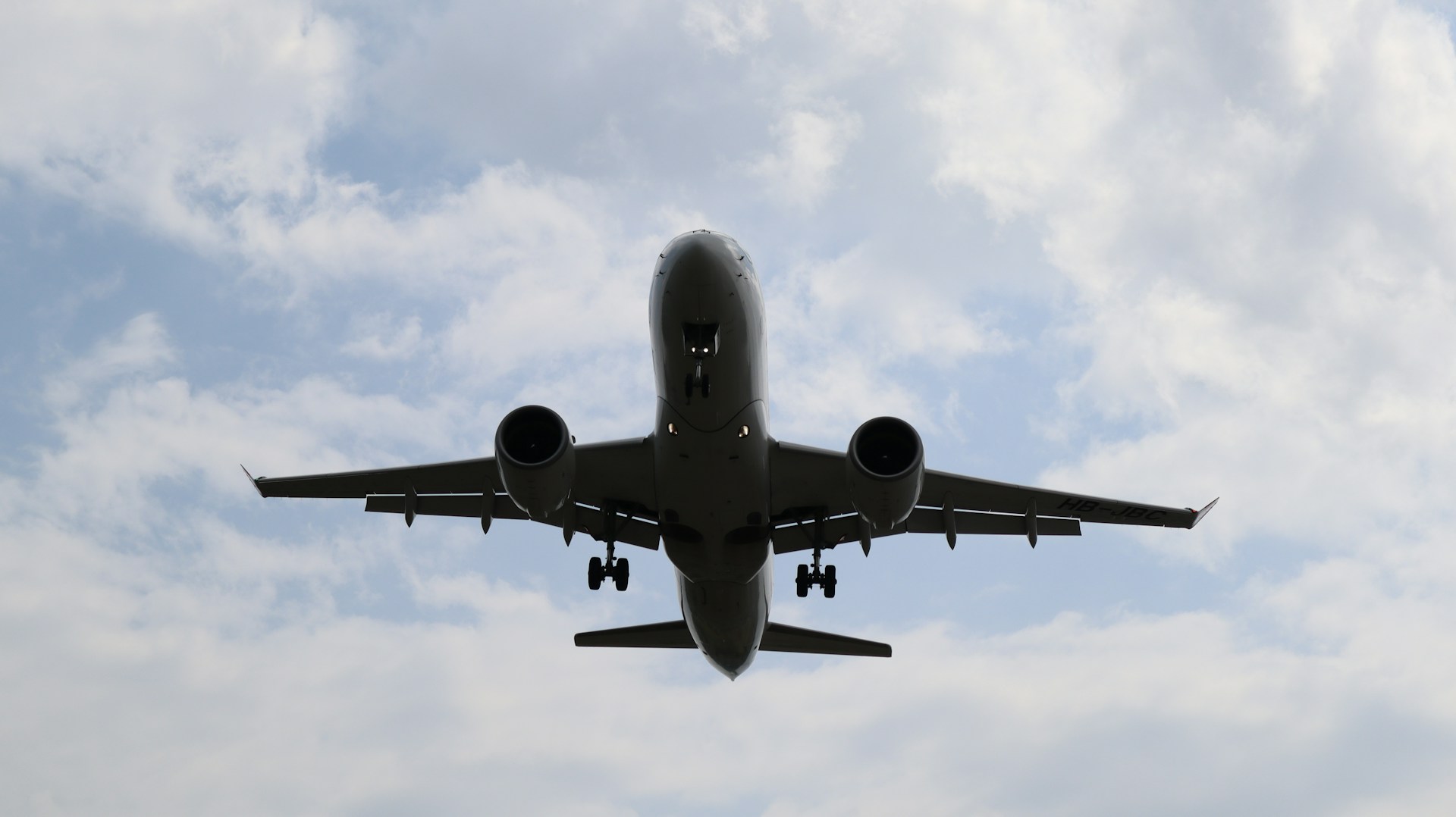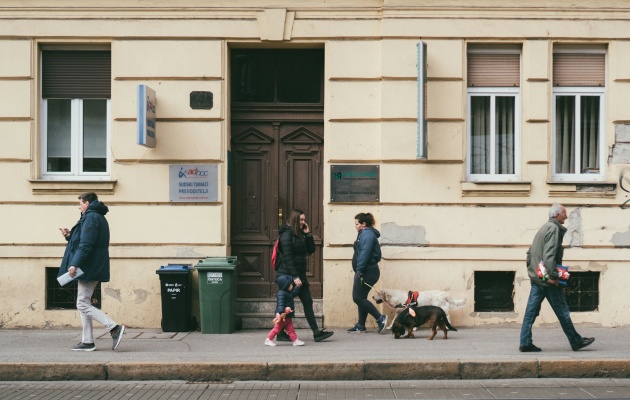Leaving your country for work: feeling guilty or being on mission?
Evangelical churches in Romania and Croatia remain connected to those who emigrate. Christians are encouraged to have a missional mindset and to hold on to their Christian values as they start a new life in Western Europe.
ZAGREB / ORADEA · 22 MARCH 2024 · 12:00 CET

Millions of people have crossed the open borders within the European Union in the hope of finding a better future elsewhere on the continent.
According to the 2022 statistics, Romania (16%), Croatia (14%) and Bulgaria (12%) are the countries with the highest percentage of citizens living in another EU country. The main reason to leave home is almost always a desire to find a better job and a more stable life.
Why people (still) leave Romania
Packing one’s bags today is not like as risky as it was some decades ago. “Romanians used to illegally leave their country before 1989, to escape the oppressive communist regime - which involved an intentional disregard of the human rights, as well as impoverishing the population in the name of an economy of the common good”, says Daniel Fărcaș, a lecturer in philosophy at the Evangelical Institute for Religious Studies in Oradea, in answers to Evangelical Focus.
With the fall of the Iron Wall and the arrival of the free market in the 1990s, the country did not see immediate change. The country was “unprepared to face the competition on the international market” and “the opportunities to legally develop a business in Romania where close to zero, due to corruption, unfriendly legislation and lack of capital”.
“At that time”, says Fărcaș, “living in the post-communist Romania came with a sense of being in the wrong place and living in the wrong time in history”.
Nowadays, life is very different, but “the diaspora continues, due to open borders with EU, both for professional and educational reasons”.
Countries with common Latin roots, such as Italy, Spain and France, are among the places where the largest Romanian communities are found. Many families have also settled in the United Kingdom, Germany or Austria. “The children of the Romanian immigrants are educated in their new countries and most of them are well-integrated”, observes Fărcaș. And most speak the language of the host country perfectly.
Cropped.png)
Countries in the European Union with most nationals in other EU countries. / Source graph: The European Correspondant Croatia, a similar story
In Croatia, people also leave their country to find “a better way, a better standard of living”, explains Petra Bohall, who lives in Zagreb. She works alongside her husband with the Evangelical Pentecostal Church of Croatia.
Life in the northern Balkan country is still marked by old scourge. “People are discouraged by the corruption from all the way at the top ranks of government down to people getting jobs from connections and not for quality of work or experience”.
Trips back home on holidays: homesickness
Not everything is perfect in the West. Despite zoom calls and instant messaging, living away from your relatives and community involves sacrifice.
Petra Bohall tells of friends who “tried to live and work outside of Croatia for a while, and then ended up moving back”. Many realise despite being “happier with their salaries, they are also lonely”. For families who started a new life in another nation, a major challenge is to “figure out how to keep full-time jobs when relatives who can help with childcare are far away”.
Most who have left enjoy a better standard of living, says Bohall, but “nobody I know pretends things are perfect outside of Croatia”.
Cropped.jpg)
A metro station in Bucharest, Romania. / Photo: Voicu Horațiu, Unsplash, CC0. In Romanian, the word for homesick is dor, “which means longing for one’s homeland or for a beloved one”, explains Daniel Fărcaș. This is what leads many to use their weeks of holidays to travel back home.
Returning migrants speak of the “financial and professional opportunities in their new country, as well as the better services of public institutions”. But there is also talk about a culture shock, says the Christian professor. “Both Evangelical and Orthodox Christians are becoming more concerned about the ideologies questioning the traditional family and gender”. Many Christians appreciate the fact that “Romania is still more conservative than most Western European countries”.
What about those who stayed?
But how do see migration those who did not chose to leave? “Friends in Croatia who have stayed and ‘beat the odds’ say that there is always work available here”, says Petra Bohall. They blame the loss of young people on “an idealization of what life is like on the outside”.
For those who stay to build a life project at home there is the temptation of getting frustrated. “I hear things like: how are things going to get better if quality people are leaving?”, says the full-time Christian worker.
Also in Romania, “there are a lot who succeeded in developing highly competitive businesses in Romania”, says Daniel Fărcaș. “The rule of law has become more effective and business opportunities have increased”. The common market, and the EU founding programmes have been pivotal for this.
Planting diaspora churches
Christians starting a new life in Western Europe often remain attached to the church they belonged to in their home country. “I can speak for my church that we are in touch with most active members that have left, my pastor speaks to some of them regularly, we make sure they feel at home and welcomed when they return for visits, and try to make them feel like they are still a part of our church”, says Petra, who herself lived some years abroad and is married to a US American.
Some of these migrants plant diaspora churches in Europe with denominational bonds with mother churches home, as in the case of the Romanian Churches of God or the Romanian Baptist Union. These evangelical communities in other countries are at times “autonomous” but often “integrated in the religious organisations of their country of adoption”. Many are supported “with permanent ministers or with occasional missionaries” from Romania.
In his experience as researcher of religion, Daniel Fărcaș has observed that “while the evangelical communities in Romania strive to find new pathways and evangelistic strategies, intending to address current cultural issues and to speak a modern language for the new generation (which includes innovation in worshipping, preaching, using cutting-edge technology, as well as creativity in the youth and children ministry), some of the diaspora churches tend to defend obsolete liturgical forms and become some kind of religious ‘time capsules’”, he analyses.

A street in Zagreb, Croatia. / Photo: Eldar Nazarov.What the gospel has to say about leaving home
“Pastors used to over-spiritualize the subject of migration and diaspora”, says the evangelical lecturer. “Deciding to immigrate to a new country for economic reasons was usually likened to the Jew’s voluntary decision to go in the Egyptian captivity”.
But Fărcaș points to Scriptures which offer different perspectives on migration. “Abraham was called to leave his homeland and take possession of a new land (Genesis 12:1). Naomi and her family went to live in Moab because of a famine in their land (Ruth 1:1), and there is no suggestion in this Old Testament book that Naomi did wrong. Some prophets asked their people to go and live in Babylon (Jeremiah 29)”.
The decision to go and live in a different country is a “personal, rational and spiritual decision”, believes Daniel Fărcaș. “Christians should ask themselves: Where does God want me to live? Why do I intend to go live abroad (or stay in my homeland)? How and where can I serve the Lord? How will my family be impacted by my decision to take them to another country? In case I decide to move into a more secularized culture, do I have the necessary safety belts to preserve my and my children’s faith and values?”
A mission mindset
For Petra Bohall, the key is to think missionally about the places where God has placed people. Believers in Croatia with a heart to reach their co-nationals with the gospel often “ache for all the people leaving” as they think of the “wonderful difference they could have made if they stayed”. But this same vision of God’s mission will also help nationals “not feel scared or threatened by all the migrants coming into Croatia”, understanding that “every person is made in the image of God and that God brings missions to us in different ways”.
“I think that Croats are now learning that we need to treat the many migrants moving into Croatia currently how we expect to be treated when we go into another country”, she concludes.
One more year
Learn all about our #OneMoreYearEF campaign here (English).
Published in: Evangelical Focus - europe - Leaving your country for work: feeling guilty or being on mission?
